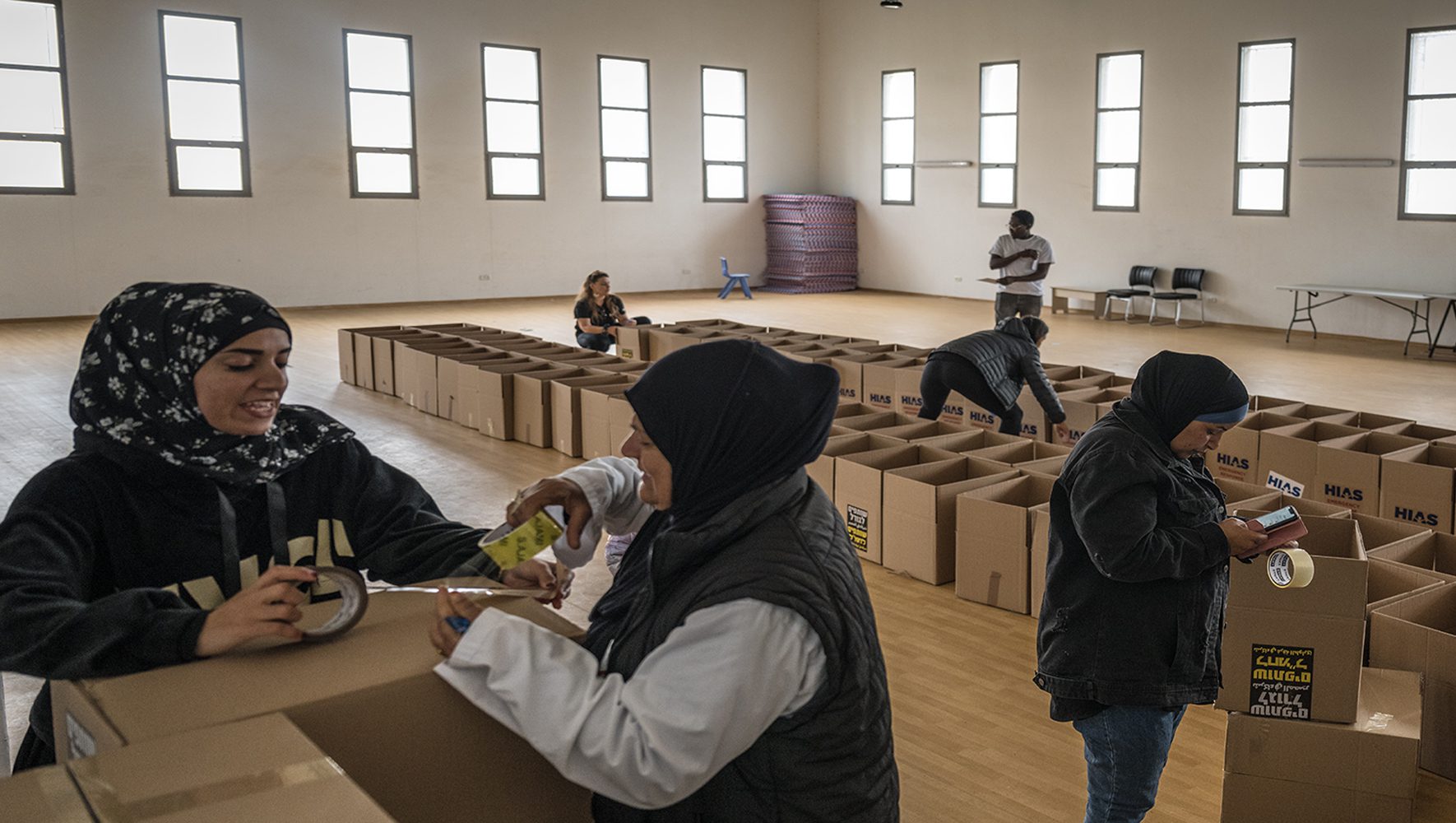
In a drab municipal compound on a dirty street in south Tel Aviv, Daniat*, an Eritrean asylum seeker, was meeting up with friends. Rocking her son in a stroller, her smile faded when she described her situation. “I’ve been [in Israel] for 15 years — and nothing. We have no status. We don’t count. The state doesn’t see us,” she says.
Daniat is a member of an “invisible” population in Israel — asylum seekers, refugees, and minorities. This group feels neglected by the government at the best of times — and war has only made things worse.
Since the October 7 attacks and subsequent war, HIAS Israel Emergency Response, directly and through partners, has supported the most vulnerable communities in Israel. HIAS has assisted more than 250,000 people, some of whom are displaced Israelis and survivors of the attacks, while many are part of communities that HIAS has longstanding relationships with, such as asylum seekers, refugees, and migrant workers.
The cash program distributed more than $192,000 to five different refugee communities in Israel, according to Zoya Levitin Pushnikov, an emergency response coordinator at HIAS Israel. “We received hundreds of requests for help from refugees, mainly women, who didn’t know how they would be able to pay rent or buy groceries for themselves or their children,” she said.
Before the war, Awate*, another Eritrean asylum seeker, worked for the now-closed women’s collective Kuchinate with a small group of women. The onset of war cost her and the others their jobs, forcing them to draw upon their savings to survive. HIAS organized a distribution event for the Kuchinate community, providing essential food, hygiene and cleaning supplies. “What HIAS provided us with today means that for at least a week I do not need to worry about putting food on the table and can pay bills that I have not had the money to pay,” Awate said.
"Thanks to the help they receive from NGOs like HIAS, they don’t have to worry how to feed their children.”Nour ElSana of Alnashmiat, the Bedouin Women’s Leadership Movement in the Negev
Aély Haccoun, HIAS’ emergency response director in Israel, says that the goal is to provide meaningful support to the people who have fallen through the cracks. “Our priority is uplifting the humanity of all the vulnerable communities, whether they’re long forgotten or newly affected,” she said.
In southern Israel, there are 35 unrecognized Bedouin villages comprising nearly 100,000 Arab Israeli citizens that lack basic infrastructure and state support. Some of these dwellings lack electricity or clean water, and they don’t have rocket fire warning alarms or public bomb shelters.
HIAS and the Joint Arab-Jewish Emergency Relief Center — HaHamal HaMeshutaf — prepared 500 care packages in the Neve Midbar Regional Council, about an hour and a half south of Tel Aviv, for residents of Dimona, Yerucham, and the nearby unrecognized Bedouin villages.
“These food baskets go to women who live under the poverty line, families that were hurt during the war time,” said Nour ElSana of Alnashmiat, the Bedouin Women’s Leadership Movement in the Negev. “The residents of the unrecognized villages don’t receive any welfare or support from the state. Thanks to the help they receive from NGOs like HIAS, they don’t have to worry how to feed their children.”
*Participant names have been changed to protect their identities.